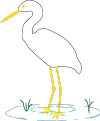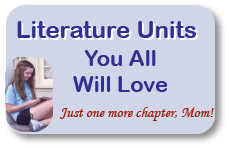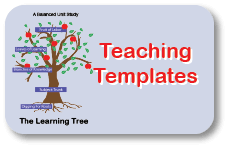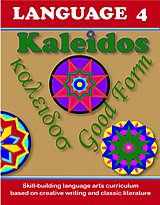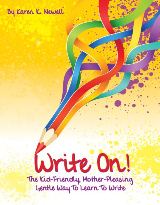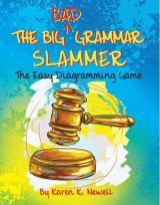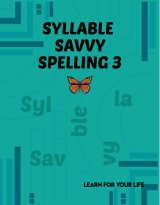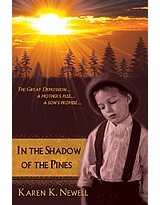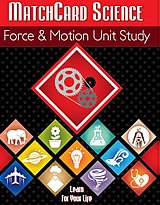Teach OUGH Words
Teach those OUGH words in seven easy lessons.
FREE printable lesson with flashcards below.
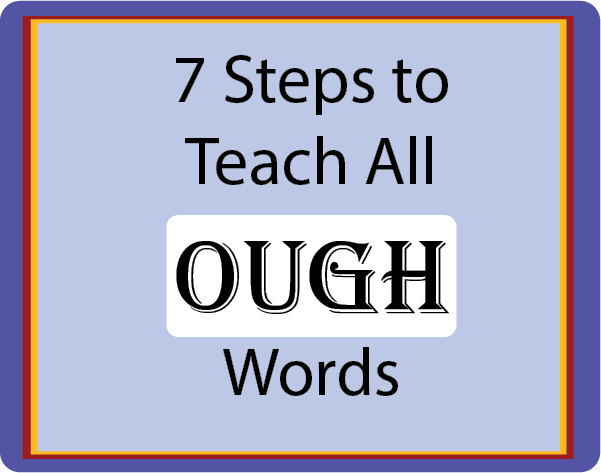
Do you find it tough to plough through spelling lessons with ough words? Although it is rough, we have thought through the strategy so you can slough off the drought of despair.
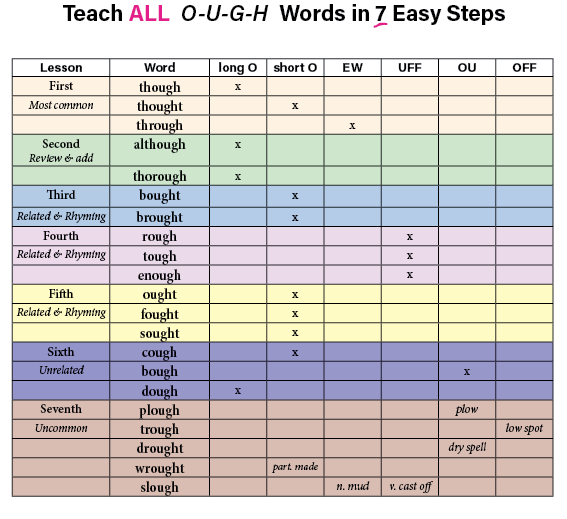
First Lesson
though, thought, through
The first OUGH lesson will simply compare these three words - which happen to be the most commonly encountered. And, of course, they are all pronounced very different.Materials needed: the small flashcards with "ough" and "t" and "th" and "thr" on them. (Use our printout - or easily make your own.)
Rationale: Yes, your students will eventually have to spell t-h-o-u-g-h-t without any prompts. But we will start our explanation by making it simple: the four letters o-u-g-h are combined into one flashcard. We'll break those letters apart later.
Directions:
- Put the three flashcards at the top of their workspace.
- THOUGH is the most commonly used OUGH word. It has six letters, but only two sounds.
- What is the first sound? (They should bring down the TH card.)
- What is the second sound? (They should bring down the OUGH card.)
- Verbally congratulate the student on their correct spelling. (Come on, they couldn't possibly get that wrong, right?)
- THOUGHT is another common OUGH word. It has three sounds.
- First sound: TH
- Second sound: OUGH
- Final sound: T
- THROUGH has only two sounds - even though it is a whopping seven letters long.
- First sound: THR
- Second sound: OUGH
- The student makes the three words with the flashcards as you dictate the words randomly.
- The student spells the three words at your dictation. They may have the flashcards in their sight to help remember the order of the letters O-U-G-H for the first lesson.
- Use the expression "think through" and "thought through" with your students intentionally.
- Ask them to list the three most common words (though, thought, through.) They will begin the next lesson by reciting these three words.
Second Lesson
although, thorough
- Ask them to recite the three most common words. Remembering the phrase "thought through" will make this task easier.
- Once again, have them encode the words with the flashcards in front of them. Two new flashcards are added for today's lesson.
- Show the word "although." If you can read, write, and spell "though," you can do the same for "although."
- Here's another word that rhymes with "though" and also has the long O: "thorough." Note that OR makes an "er" sound.
- Now they should be able to recite from memory four OUGH words: though, although and thought through.
Compare THOUGH and ALTHOUGH
Okay, so I know you are dying to know the difference between these two related words:- though - can be a subordinating conjunction OR an adverb
- although - is always a subordinating conjunction
More information is contained in the Lesson Plans - but, remember - this is spelling!
Third Lesson
bought, brought
- Let's add bought and brought to our list of OUGH words.
- Note that they rhyme with thought.
- Have them make the words with the flashcards. Add the B and BR flashcards to their workspace.
- Past tense
- Think - thought
- Buy - bought
- Bring - brought
- Recite the three pairs of OUGH words (though/although and thought/through and bought/brought)
Fourth Lesson
rough, tough, enough
- Can they recite the six OUGH words in the three pairs?
- Let's add three more that rhyme: rough, tough, enough. Just for fun: what sentence can you come up with which includes all three words?
- Time to really cement the spelling of these words down, even when we don't have the handy OUGH card in front of us. Recite this phrase in your head, "Oh, you, GH." (Use a vocal inflection as if you were talking to someone named GH who had exasperated you a bit.)
- So just why are we irritated with GH? Because it causes us such spelling headaches. Likely your student is familiar with the much more common IGH words (light, sight, fight, etc.) Well the OUGH are a little tougher because they don't all rhyme. Plus there are a few other naughty words that have to be taught before students have caught all the fastballs GH has thrown at us.
- Want to know why GH is a letter combination thrown at us? Didn't think you did, but I'll tell you anyway. It comes from the German influence. I'm not even going to try to figure out how these words were pronounced originally, but you can bet they have changed over the course of about eight centuries.
- This lesson is getting rough, and tough enough. Make sure your student can spell all NINE words.
- And, of course, see how clever they are at reciting the nine words in four sections (rough, tough, and enough didn't even have the decency to come in a pair.)
Fifth Lesson
ought, fought, sought
Repeat after me: One ought not to have fought but to have sought understanding..Yikes, that's archaic! Nonetheless, I'm sure you agree that one ought to know how to read and write sought and fought.
- Repeat that annoying line above.
- No more OUGH flashcards for you. You are now expected to be able to spell the words without that little aid. (But, for poorer spellers, continue to use it until these words are mastered.)
- Let's time it. How long will it take you to name the 12 most common OUGH words.
Sixth Lesson
cough, bough, dough
So just what do these three words have in common? I mean, they don't rhyme or anything!Good news! We are just about at the end of the usual words that the average person might encounter in everyday life. That is, if you need to run to the bank to pick up some dough, then to pharmacy to get cough drops, then to the hardward store to get a saw to cut of the bough of an old tree. You'll be thankful for this lesson while writing your shopping list, you see.
Check out the pronunciation table of the different OUGH words.
Seventh Lesson
plough, trough, drought, wrought, slough
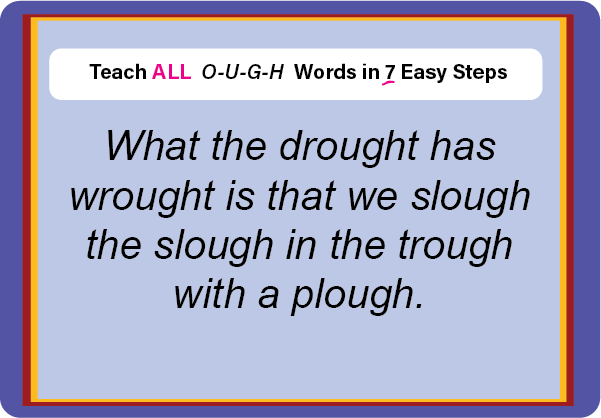
What the drought has wrought is that we slough the slough in the trough with a plough.
- Plough - an older version of the farmer's plow. Same pronunciation. You'll see the older spelling in literature books.
- Trough - (rhymes with off) A low point, low ditch, or bottom of a box to feed livestock
- Drought - (rhymes with pout) - Lack of water
- Wrought - (rhymes with not) - this is the past passive participle of work (work, worked, wrought). {Compare to write, wrote, written.} Confined largely to poetry and older works.
- Slough - two different definitions with their own pronunciation
- To get rid off or cast off (rhymes with fluff)
- Swampy area, mud (rhymes with new)
Download the FREE O-U-G-H Lessons
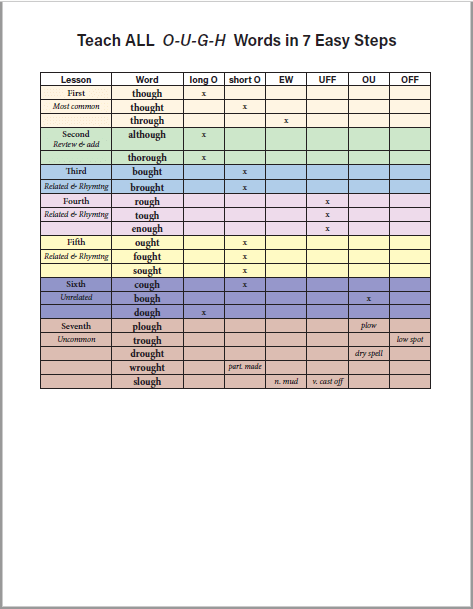
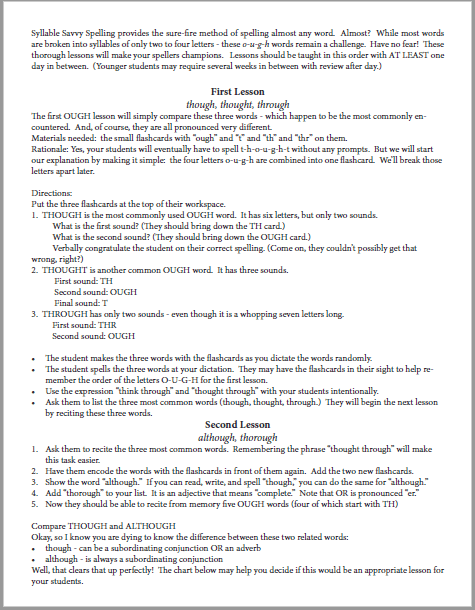
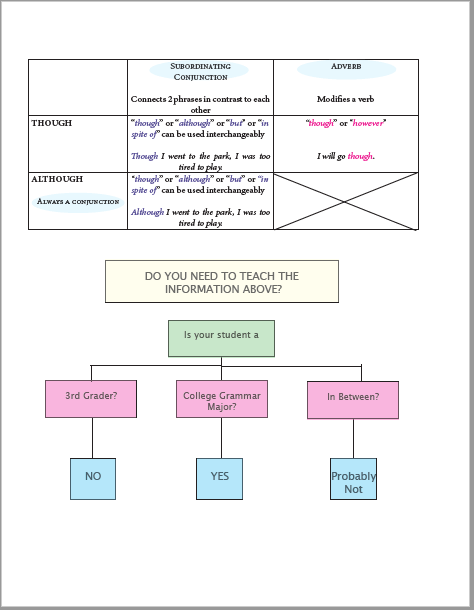
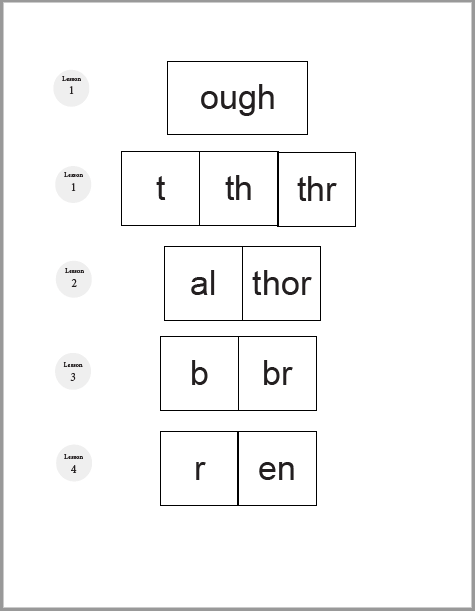
Click to print the seven page lesson plan.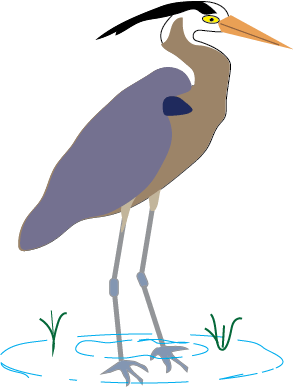
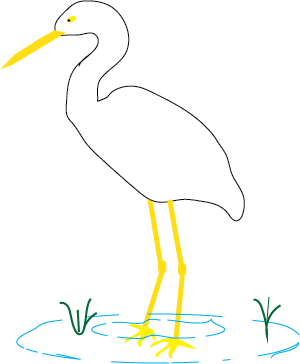
About Our Site
Hands-On Learning

